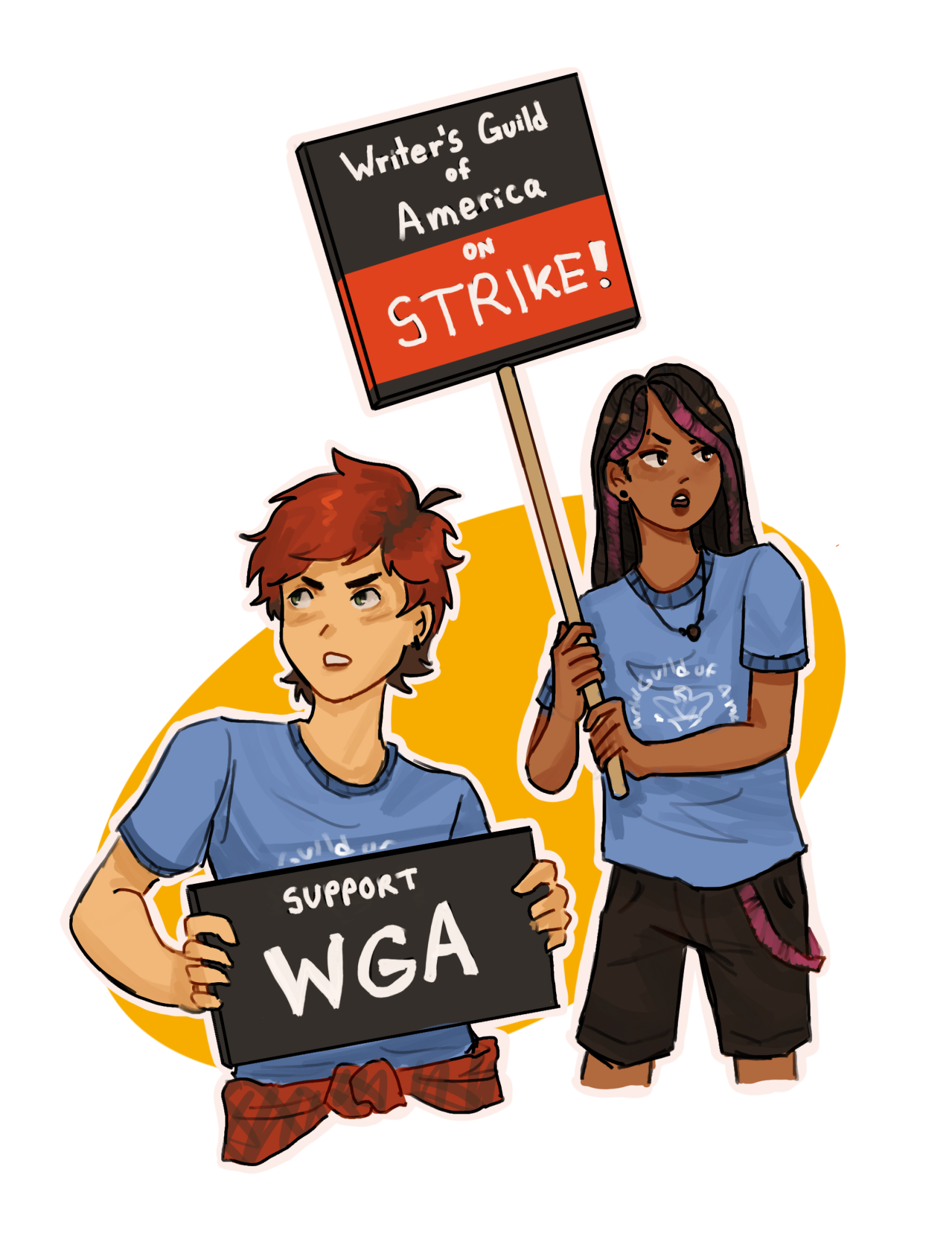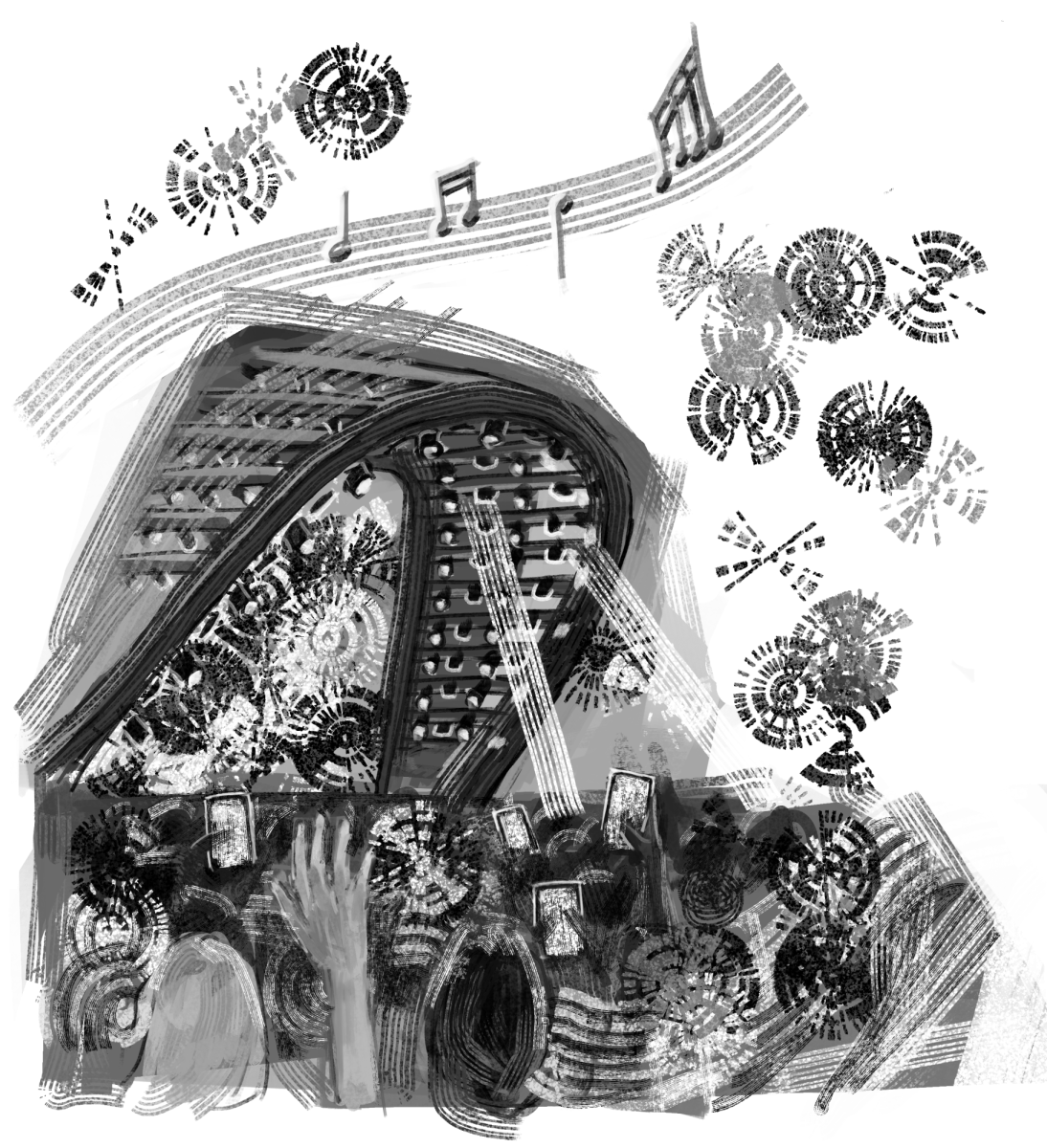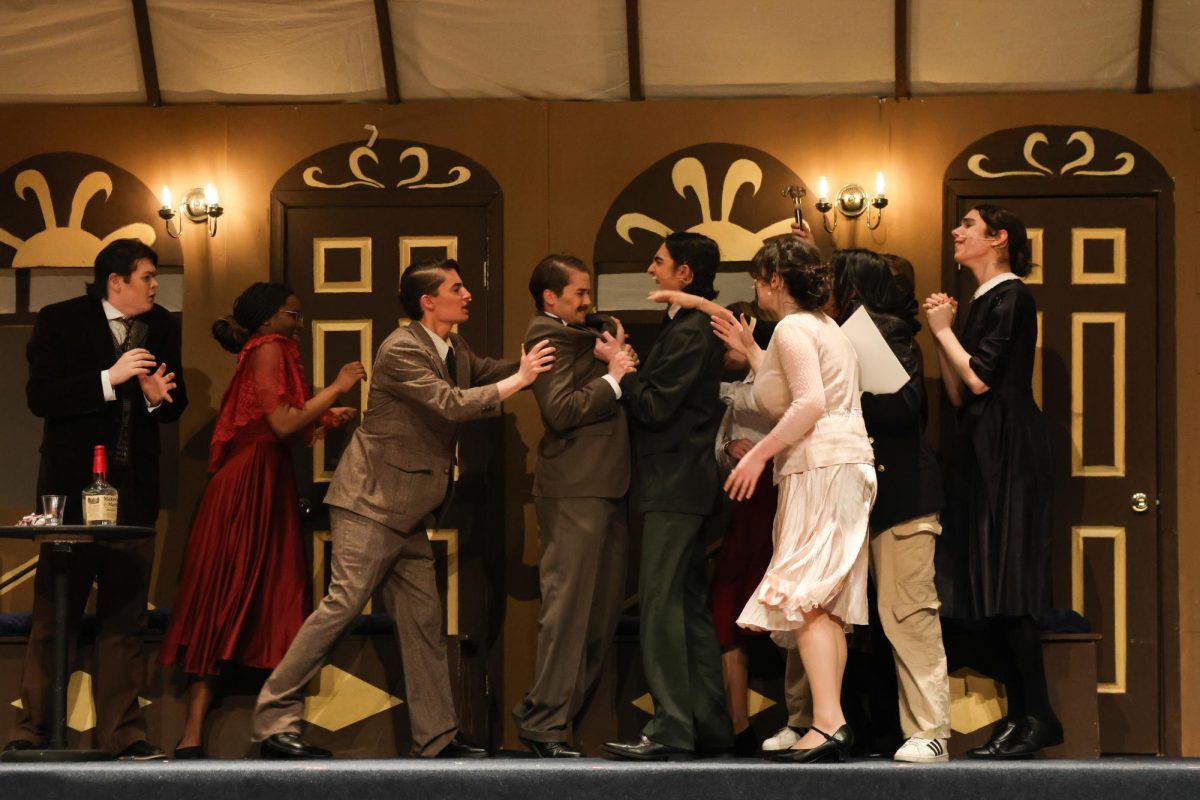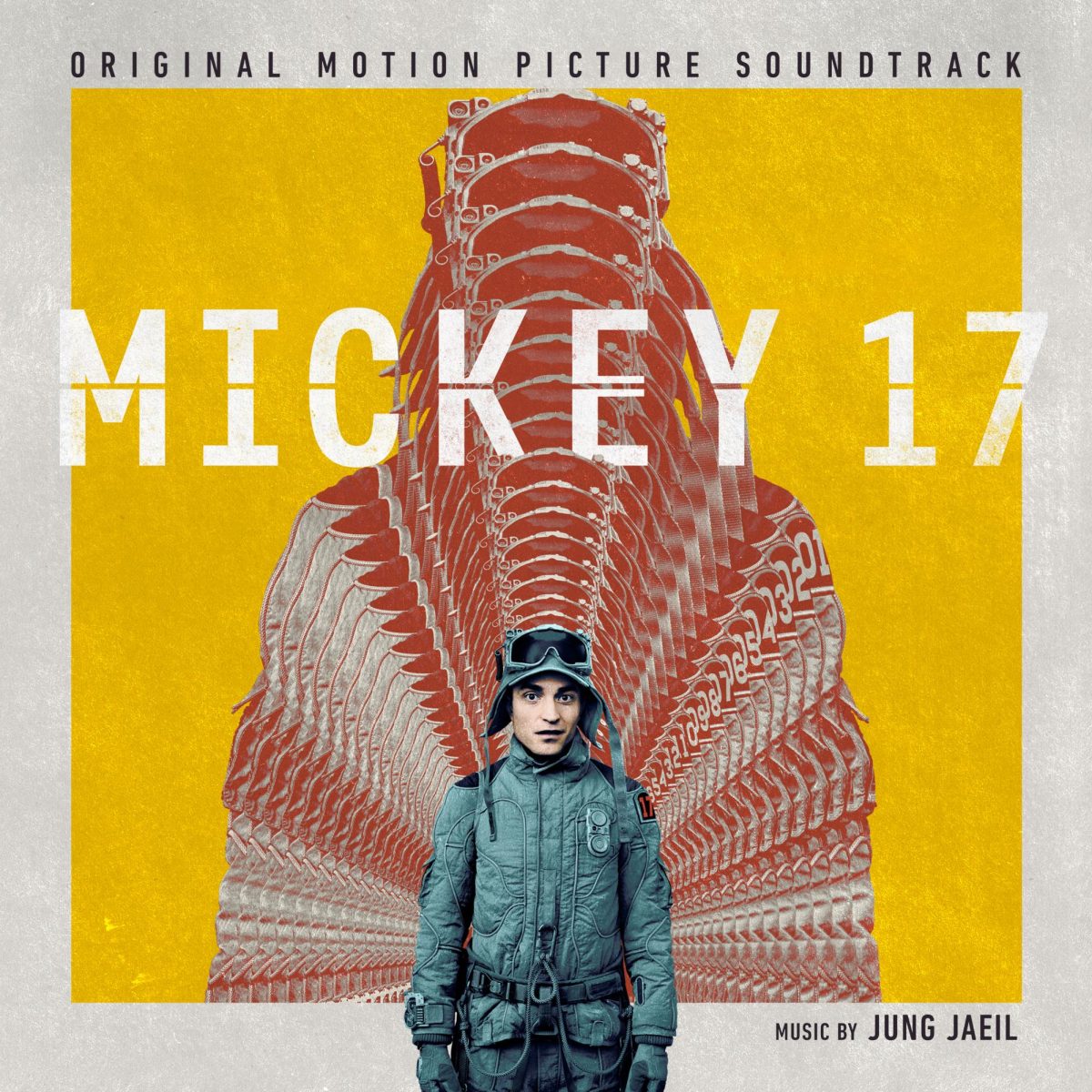On Sept. 24, the Writers Guild of America reached a tentative agreement with the studios after a five-month-long strike. Still, the fight in Hollywood continues as the Screen Actors Guild and American Federation of Television and Radio strike persists. However, according to Deadline, negotiations on Nov. 1 indicate movement between SAG-AFTRA and AMPTP for a new three-year contract following 111 days of striking.
Scrolling through the Netflix catalog, all types of shows fill your eyes, from gritty detective stories to cheerful rom-coms. But despite the difference in genres, these shows all have one thing in common–they were all created by a team of writers and actors.
The streaming industry in America has grown exponentially to the point where it is currently valued at $169 billion, mainly overtaking traditional network television and causing massive upheavals in the entertainment industry. However, one of the biggest problems in the streaming industry is the pay and work schedules for writers and actors.
During the peak era of network television, shows typically ran from September to May. In most cases, the average 22-episode season would provide an actor or writer with stable work for the year. Streaming has shortened seasons to around eight episodes, which allows more creative freedom but less financial stability.
Considering that the typical show writer or actor works on one production for 40 weeks out of a year, this would mean that their job has been halved to 20 weeks for one production. Writers and actors must then scramble to find multiple jobs during the year to keep afloat. It only helps that a few writers have contracts forbidding them to write for other companies. This creates an unfair situation as they need more compensation and work but are still looking for it through another production.
Additionally, the more time and effort put into a show, the less time writers and actors have to scramble to find part-time jobs because the gap between seasons is longer. An example of this unfortunate situation is “Stranger Things,” a show known for its quality production and writing, but also known to take up to two years before another season is released.
Streaming has also changed how writers and actors are compensated for their work. Traditionally, network TV shows paid writers and actors in residuals, meaning every time the show aired, the writers and actors got a check. In this system, the more successful the show was, the more money the company and staff received.
However, streaming has allowed companies to bypass this system and create new contracts in which writers and actors get one check–no matter how often the show is streamed. This massively reduces the writers’ and actors’ income while still creating record-breaking profits for the company.
The strikers demand better pay and working hours, as well as protection from Artificial Intelligence. All major productions have been delayed due to this strike, with some of the more notable being “Spider-Man: Across The Spider-Verse Part 2” and “Deadpool 3”.
The strike has been ongoing since May and has cost the entertainment industry over $5 billion. It is unclear when the strike will end, but some RM students have shared their thoughts.
“I honestly don’t know [when the strike will end]. Last time a strike of this scale happened, it was the 1950s, and that was a completely different scenario,” senior Liam Bodner said. “But I do think that the studios will eventually start hemorrhaging large amounts of money, which is kind of the thing that will make them, you know, make the deal.”
The breakdown of negotiations between the strikers and the Alliance of Motion Pictures and Television Producers has only increased this confusion. On several occasions, the AMPTP has attempted to make a deal with the strikers but still calls their demands unrealistic. This has sparked some doubt as they have a lot of money within their organization.
“They make a lot. I don’t know exactly how much, but they definitely can afford it. I don’t think that’s an issue,” senior Joanna Wu said.
However, the strikers have held firm and are preparing for the long haul by creating a strike relief fund that helps pay the bills of the many writers and actors while they scramble to find part-time jobs. There are also online auctions where the public can buy a famous artist’s painting or autograph, with the money collected going into the strike fund. The sheer volume of this strike, as well as the enormous support it’s gotten from other unions such as the Teamsters, may expand to other industries in America–affecting not only what we watch as viewers but how we operate as a society.
“I don’t claim to know all the ins and outs of every aspect, but I certainly think I read somewhere that a writer was making like $17 an hour. That’s ridiculous,” English teacher Mrs. Robin Strickler said. “The same thing was kind of happening with junior colleges, hiring English teachers. So it’s just like, oh, just get an adjunct to do that. And it says, ‘oh, basically, your skill isn’t worth anything.”








